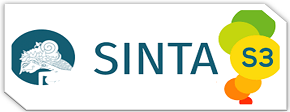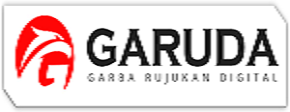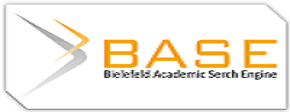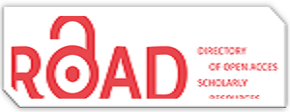Effect Of Technology, Organization, And External Environment On Business Performance Mediated By The Adoption Of Technology 4.0 In SMEs
DOI:
https://doi.org/10.30587/jurnalmanajerial.v9i02.3854Keywords:
Technology, Organization, Environment, Adoption, SMEs, PerformanceAbstract
Background – SMEs are very important for a country's economic growth and are recognized as one of the main contributors to economic development, which results in job growth. However, Manding SMEs in Bantul Regency find it difficult to survive in the current economic environment, especially during the current Covid-19 pandemic. This study analyzes the issue of deteriorating performance due to the COVID-19 pandemic in Bantul. Aim – This study aims to re-analyze the relationship between Technology-Organization-Environment (TOE) and SME business performance. Design / methodology / approach – This research is a census study with the number of respondents as many as 30 UKM Leather Manding in Bantul, Yogyakarta, Indonesia. The method of data collection is done by distributing questionnaires. The analytical tool used in this research is Partial Least Square (PLS). Results and Discussion - This study has found a positive and significant relationship with each hypothesis. The results of hypothesis 1 in this study found that technology factors were positively and significantly related to SME business performance. hypothesis 2 has the greatest value compared to the variables of technological factors and external environmental factors. hypothesis 3 has a relatively small original sample value compared to technological factors and organizational. hypothesis 4 in this study indicate that the direction of the relationship is positive and significant. hypothesis 5 found that organizational factors affect SME business performance mediated by the adoption of technology 4.0. Conclusion - The results of the research that have been carried out show that the Leather Manding SME in Bantul has SME business performance which is influenced by the adoption of technology 4.0. On the other hand, the adoption of technology 4.0 itself is influenced by technological factors, organizational factors, and external environmental factors. Research implication – Provide direction for SME Kulit Manding in Bantul to strengthen and sustain organizational growth by enhancing and collaborating on SME's distinct image, goals, strategies, and core values as well as facilitating consistent relationships within and outside of ICT interactions in order to compete and excel in the leather craft industry. Limitations – Based on the findings of this study, this study has several limitations, the sample in this study was limited to certain areas, namely Manding, Bantul, Special Region of Yogyakarta. Although this study establishes a cognitive model of the TOE and SMEs business performance consistent with the theoretical basis used, however, based on theoretical aspects, the study of technology adoption 4.0 in SMEs still provides development opportunities to test the cognitive model TOE and SMEs business performance.
References
Ahmad, S.Z.; Ahmad, N.; Bakar, A.R.A. (2018). Reflections of entrepreneurs of small and medium-sized enterprises concerning theadoption of social media and its impact on performance outcomes: Evidence from the UAE.Telemat. Inform. 2018,35, 6–17.
Alam, Syed and Arumugam, Vijayesvaran & Md Nor, Nor Ghani & Kaliappan, Pushpa & Fang, Lee. (2013). Relationships between Innovation Capabilities, Business Performance, Marketing Performance and Financial Performance: A Literature Review. Business and Management Horizons. 1. 10.5296/bmh.v1i1.3415.
Alsharji, A., Ahmad, S., Abu Bakar, Abdul Rahim. (2018). Understanding social media adoption in SMEs: Empirical evidence from the United Arab Emirates. Journal of Entrepreneurship in Emerging Economies. 10. 00-00. 10.1108/JEEE-08-2017-0058.
Apulu, Idisemi and Latham, Ann. (2011). Drivers for Information and Communication Technology Adoption: A Case Study of Nigerian Small and Medium Sized Enterprises. International Journal of Business and Management. 6. 10.5539/ijbm.v6n5p51.
Azadegan, Arash and Teich, Jeffrey. (2010). Effective benchmarking of innovation adoptions: A theoretical framework for e-procurement technologies. Journal of Operations Research International Journal of Technology Management Transactions on Operational Research. 17. 10.1108/14635771011060558.
Barney, J.B. (2001). Resource-based theories of competitive advantage: A ten-year retrospective on the resource-based view.J. Manag.2001,27, 643–650.
Bauer, S.E., U. Im, K. Mezuman, and C.Y. Gao. (2019). Desert dust, industrialization and agricultural fires: Health impacts of outdoor air pollution in Africa. J. Geophys. Res. Atmos., 124, no. 7, 4104-4120, doi:10.1029/2018JD029336.
Bhattacharya, M.; Wamba, S.F. A. (2018). Conceptual framework of RFID adoption in retail using TOE framework. InTechnology Adoptionand Social Issues: Concepts, Methodologies, Tools, and Applications; IGI Global: London, UK, 2018; pp. 69–102.
Braojos-Gomez, J.; Benitez-Amado, J.; Llorens-Montes, F.J. How do small firms learn to develop a social media competence?Int. J.Inf. Manag. 2015,35, 443–458.
Chong, Josephine L.L., and Olesen, Karin (2017). “A Technology-Organization-Environment Perspective on Eco-effectiveness: A Meta-analysis”. Australasian Journal of Information Systems. Vol 21, pp. 1-26.
Dias Canedo, E.; Morais do Vale, A.P.; Patrão, R.L.; Camargo de Souza, L.; Machado Gravina, R.; Eloy dos Reis, V.; Lúcio LopesMendonça, F.; de Sousa, R.T. (2020). Information and Communication Technology (ICT) Governance Processes: A Case Study.Information 2020,11, 462.
Dokukina, A.A.; Petrovskaya, I.A. Open Innovation as a Business Performance Accelerator: Challengesand Opportunities for the Firms′ Competitive Strategy. In Proceedings of the International Science andTechnology Conference “FarEastCon 2019”, Vladivostok, Russia, 1–4 October 2019; pp. 275–286.
Dutot, V.; Bergeron, F.; Raymond, L. (2016). Information management for the internationalization of SMEs: An exploratory study basedon a strategic alignment perspective.Int. J. Inf. Manag. 2014, 34, 672–681.
Geurin, A.N.; Burch, L.M. User-generated branding via social media: An examination of six running brands.Sport Manag. Rev. 2017,20, 273–284.
Gupta, P.; Seetharaman, A.; Raj, J.R. The usage and adoption of cloud computing by small and mediumbusinesses.Int. J. Inf. Manag. 2013, 33, 861–874.
Haseeb, M.; Hussain, H.I.; ́Slusarczyk, B.; Jermsittiparsert, K. (2019). Industry 4.0: A solution towards technology challenges ofsustainable business performance.Soc. Sci.2019,8, 154.
Henseler, J.; Ringle, C.M.; Sinkovics, R.R. Exploration/exploitation innovation and firm performance:The mediation of entrepreneurial orientation and moderation of competitive intensity.J. Asia Bus. Stud. 2019,13, 489–506.
Jitpaiboon, T.; Vonderembse, M.; Asree, S. (2010). The influence of top management support and informationtechnology (IT) utilization on supply chain integration (SCI).Calif. J. Oper. Manag. 2010,8, 1–19.
Kaplan, A.M.; Haenlein, M. (2010). Users of the world, unite! The challenges and opportunities of Social Media. Bus. Horiz. 2010, 53, 59–68.
Lei, C.F., & Ngai, E. W. T. (2012). “Green IS assimilation: A theoretical framework and research agenda”. In Proceedings of American Conference on Information Systems.
Lupo, Crystal. (2015). Adoption of Innovation in Small-Scale Forestry: The Case of Portable Sawmill Based Microenterprises. Social change. 7. 10.5590/JOSC.2015.07.1.03.
Maduku, D.K.; Mpinganjira, M.; Duh, H. (2016). Understanding mobile marketing adoption intention by South African SMEs: A multi-perspective framework.Int. J. Inf. Manag. 2016,36, 711–723.
Maroufkhani, P.; Tseng, M.-L.; Iranmanesh, M.; Ismail, W.K.W.; Khalid, H. (2020). Big data analytics adoption: Determinants andperformances among small to medium-sized enterprises.Int. J. Inf. Manag.2020,54, 102190.
Martín, S.S., López‐Catalán, B. and Ramón-Jerónimo, M.A. (2012). Factors determining firms’ perceived performance of mobile commerce. Industrial Management & Data Systems, 112(6), 946-963
Odoom, R.; Anning-Dorson, T.; Acheampong, G. (2017). Antecedents of social media usage and performance benefits in small-andmedium-sized enterprises (SMEs).J. Enterp. Inf. Manag.2017,30, 383–399.
Okechi, O., & Kepeghom, O. M. (2013). Empirical evaluation of customers’ use of electronic banking systems in Nigeria. African journal of computing & ICT, 6(1), 7-20.
Olanrewaju, A. S. T., Hossain, M. A., Whiteside, N., & Mercieca, P. (2020). Social media and entrepreneurship research: A literature review. International Journal of Information Management, 50, 90-110.
Pateli, A.; Mylonas, N.; Spyrou, A. (2020). Organizational Adoption of Social Media in the Hospitality Industry: An Integrated ApproachBased on DIT and TOE Frameworks.Sustainability2020,12, 7132.
Prause, M. (2019). Challenges of Industry 4.0 Technology Adoption for SMEs: The Case of Japan. https://doi.org/10.3390/su11205807
Qalati, S., li, W., Ahmed, N., Mirani, M., Khan, A. (2020). Examining the Factors Affecting SME Performance: The Mediating Role of Social Media Adoption. Sustainability. 13. 1-24. 10.3390/su13010075.
Quayle, M.; Christiansen, J.K. Business Issues in the 21st Century: An Empirical Study of E-CommerceAdoption in UK and Denmark SMEs.Electron. Commer. Small Medium Sized Enterp.2004, 53–68.
Rogers, E. (2003). Diffusion of innovations (5th ed.). New York, NY: The Free Press.
Seo, S.-W.; Kim, H.-C.; Zhu, Z.-Y.; Lee, J.-T. (2020). What Makes Hotel Chefs in Korea Interact with SNS Community at Work? Modelingthe Interplay between Social Capital and Job Satisfaction by the Level of Customer Orientation.Int. J. Environ. Res. Public Health,17, 7129.
Shankar, V., Venkatesh, A., Hofacker, C. & Naik, P.2010. Mobile marketing in the retailing environment: Current insights and future research avenues. Journal of Interactive Marketing, 24(2), 111–20.
Singh, S.K.; Del Giudice, M.; Tarba, S.Y.; De Bernardi, P. (2019). Top Management Team Shared Leadership,Market-Oriented Culture, Innovation Capability, and Firm Performance.IEEE Trans. Eng. Manag. 1–11.
Steininger, D.M.; Lorch, M.; Veit, D.J. (2014). The Bandwagon effect in digital environments: An experimental study on Kickstarter. com.Multikonferenz Birtschaftsinformatik 2014, 2014, 546–556.
Studen, L.; Tiberius, V. Social Media, Quo Vadis? Prospective Development and Implications.Future Internet 2020,12, 146.
Tajudeen, F.P.; Jaafar, N.I.; Ainin, S. (2018). Understanding the impact of social media usage among organizations.Inf. Manag. 2018, 55, 308–321.
Tella, A.; Ukwoma, S.C.; Adeniyi, I.K. (2020). A two models modification for determining cloud computing adoption for web-basedservices in academic libraries in Nigeria.J. Acad. Librariansh,46, 102255.
Terence, T.; Soufani, K. Business Strategies for Small Firms in the New Economy.J. Small Bus. Enterp. Dev. 2003,10, 306–320.
Tornatzky, L.G. and Fleischer, M. (1990) The Processes of Technological Innovation. Lexington Books, Lexington.
Trainor, K.J.; Andzulis, J.M.; Rapp, A.; Agnihotri, R. (2014). Social media technology usage and customer relationship performance:A capabilities-based examination of social CRM.J. Bus. Res.2014,67, 1201–1208.
Varis, M., and Littunen, H. (2010). Types of innovation, sources of information and performance in entrepreneurial SMEs. European Journal of Innovation Management.
Zhu, K.; Kraemer, K.L. Post-adoption variations in usage and value of e-business by organizations:Cross-country evidence from the retail industry.Inf. Syst. Res. 2005,16, 61–84.






























 P-ISSN: 2354-8592 __ E-ISSN: 2621-5055
P-ISSN: 2354-8592 __ E-ISSN: 2621-5055 
